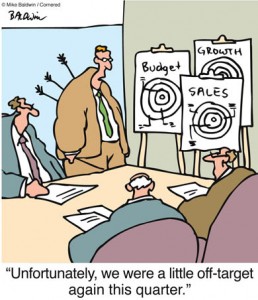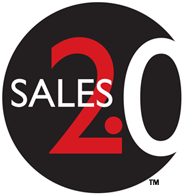 On Saturday I presented a session about B2B Marketing Analytics at AnalyticsCamp in Chapel Hill (slides here). My specialty is Marketing Automation, but Analytics and Reporting come up in pretty much any project I do. Even though I almost flunked my Statistics class in college, there’s no denying that Marketing Automation and Marketing Analytics are two sides of the same coin.
On Saturday I presented a session about B2B Marketing Analytics at AnalyticsCamp in Chapel Hill (slides here). My specialty is Marketing Automation, but Analytics and Reporting come up in pretty much any project I do. Even though I almost flunked my Statistics class in college, there’s no denying that Marketing Automation and Marketing Analytics are two sides of the same coin.
Why Analytics?
Part of the attractiveness of Marketing Automation is that marketing processes finally become repeatable and measurable. So it’s no wonder that marketers who believe in automation also want to see reports on marketing performance. But what exactly do they want to do with that information? This is my take:
- Optimize marketing tactics
- Optimize marketing budget
- Optimize ROI
- Predict revenue
Challenge 1: Choose Your Metrics
To accomplish the above tasks you need to choose the right metrics: rich enough to provide insight and simple enough to be actionable. When I made my presentation I put them in 4 categories, and I’d love to have your feedback on them:
Basic Metrics
This is the flawed but still-important number of inquiries (raw leads), plus the number of qualified leads. You can use lead scoring or a phone call to see whether a lead matches your ideal lead profile. If yes, you have a qualified lead. This should be fairly simple to capture, but not every company is doing this yet.
Revenue Metrics
Step 2 is to tie campaigns to revenue. You need to link marketing automation to CRM so you can link campaigns to sales opportunities. At first, you can attribute the full revenue to the first campaign, but as you get more sophisticated you may want to set up a multiple attribution model (not for the faint of heart though!).
Process Metrics
SiriusDecisions did a lot of work here by defining the demand generation waterfall model: Inquiries > Marketing Qualified Leads > Sales Accepted Leads > Sales Qualified Leads > Won Business. If you measure the ratios between the stages, you can see where the bottlenecks are in the sales & marketing processes. SiriusDecisions can also provide benchmark numbers.
Justification Metrics
These are the metrics to cover your back. Keep track of how much of the sales pipeline is generated by marketing. This clearly shows how much revenue potential marketing is responsible for. This also makes it possible to calculate the ROI, which – hopefully – shows that the investment in marketing pays back for itself (don’t do this until you know it’s going to look good ;- ).
Challenge 2: Collect Data & Run Your Reports
Part of the data you need comes from your website and partly it is from your CRM system. You probably also want to measure whether leads respond to your emails, and you want to input some cost data. So in principle, a Marketing Automation system should be able to capture most of this data. In reality, you may still have to do some customization to be totally closed-loop.
Support for reporting in Marketing Automation systems is very mixed. Simple systems often have only basic reporting, the larger systems tend to have an embedded BI tool, which is powerful but not necessarily easy to use.
What I Want
I’d love to have Google Analytics for Marketing Analytics. Just hook it up to your Marketing and CRM databases, and do your analysis. I’ve seen some promising products, like YouCalc and GoodData (a client of mine), but it’s not as easy and comprehensive as Google Analytics is for Web Analytics. What do you think: can we expect such a tool in the near future?
PS. Also let me know your opinion on my slide deck

 “Sales 2.0 brings together customer-focused methodologies and productivity-enhancing technologies that transform selling from an art to a science. Sales 2.0 relies on a repeatable, collaborative and customer-enabled process that runs through the sales and marketing organization, resulting in improved productivity, predictable ROI and superior performance.” – Pelin Wood Thorogood and Gerhard Gschwandtner
“Sales 2.0 brings together customer-focused methodologies and productivity-enhancing technologies that transform selling from an art to a science. Sales 2.0 relies on a repeatable, collaborative and customer-enabled process that runs through the sales and marketing organization, resulting in improved productivity, predictable ROI and superior performance.” – Pelin Wood Thorogood and Gerhard Gschwandtner